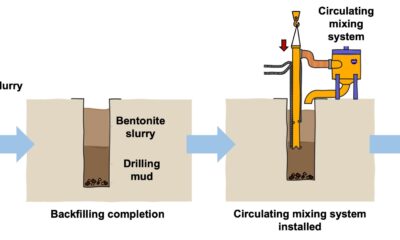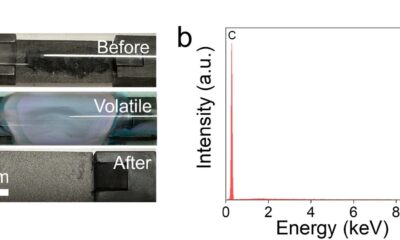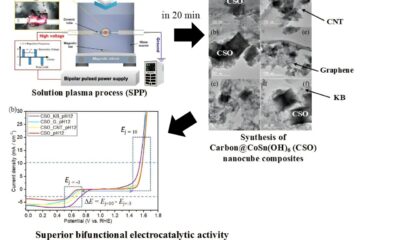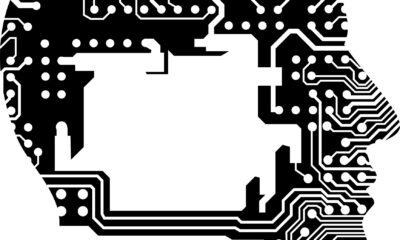Tech
Nvidia to supply 260,000 cutting-edge chips to South Korea
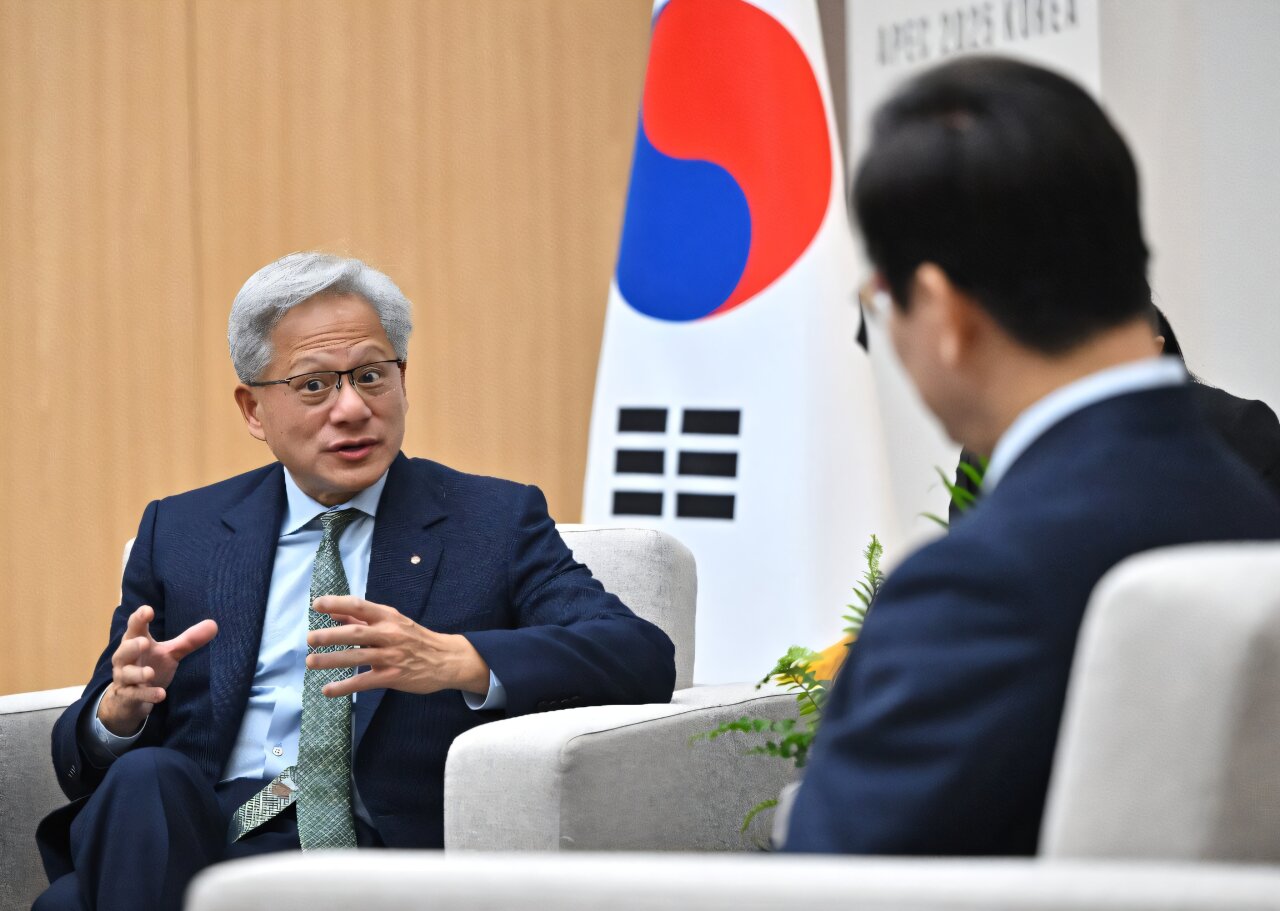
US tech giant Nvidia said on Friday it will supply 260,000 of its most cutting-edge chips to South Korea, as CEO Jensen Huang met President Lee Jae Myung and the heads of Korea’s biggest companies on the sidelines of the APEC summit.
South Korea is home to two of the world’s leading memory chip makers—Samsung Electronics and SK hynix—which manufacture chips essential for artificial intelligence products and the data centers that the fast-evolving industry relies on.
President Lee has also expressed his hope the country can become a leading AI power.
Nvidia said it was “working with South Korea to expand the nation’s AI infrastructure with over a quarter-million Nvidia GPUs across its sovereign clouds and AI factories”.
Under Friday’s deal, 50,000 of the graphics processing units will go towards a new “AI factory” being built by Samsung Electronics.
“By deploying more than 50,000 Nvidia GPUs, AI will be embedded throughout Samsung’s entire manufacturing flow,” the Korean tech giant said.
SK Group and Hyundai Motor Group will also receive 50,000 chips for use in AI facilities.
NAVER Cloud—which operates South Korea’s largest search engine—will receive 60,000 to expand its AI infrastructure.
A further 50,000 will be deployed across Seoul’s National AI Computing Center and to cloud service and IT providers.
“Korea’s leadership in technology and manufacturing positions is at the heart of the AI industrial revolution—where accelerated computing infrastructure becomes as vital as power grids and broadband,” Nvidia CEO Huang said.

Chicken and chips
Huang has sought to forge closer ties with South Korean tech giants in his visit to the country this week.
He met Samsung Chairman Lee Jae-yong and Hyundai Motor Group Executive Chair Chung Eui-sun on Thursday for “chimaek”—a beloved South Korean pairing of fried chicken and beer—in the capital Seoul.
The restaurant, Kkanbu, was reportedly chosen by Nvidia because the term—popularized by Netflix’s megahit “Squid Game” and meaning “friend”—was intended to highlight the spirit of friendship underpinning their AI and chip collaborations.
Nvidia in July became the first company to top $4 trillion in market capitalization, and followed that up by becoming the first to hit $5 trillion following a company event on Tuesday where it announced new ventures building on its AI technology.
Its chips drive much of the global AI industry and even featured in talks between US President Donald Trump and Chinese leader Xi Jinping in Gyeongju this week.
Beijing has ramped up its chip industry to beat Washington’s export restrictions on the critical component used to power AI systems.
Nvidia has been caught in the middle of that geopolitical tussle. Its chips are currently not sold in China due to a combination of Beijing government bans, US national security concerns and ongoing trade tensions.
Huang has urged the United States to allow the sale of US-made AI chips in China in order to ensure Silicon Valley companies remain a global powerhouse in providing artificial intelligence.
“We did discuss chips,” Trump said after meeting Xi, adding that Huang would speak to Beijing about the dispute.
“We’re sort of the arbitrator or the referee,” Trump said.
© 2025 AFP
Citation:
Nvidia to supply 260,000 cutting-edge chips to South Korea (2025, October 31)
retrieved 31 October 2025
from https://techxplore.com/news/2025-10-nvidia-edge-chips-south-korea.html
This document is subject to copyright. Apart from any fair dealing for the purpose of private study or research, no
part may be reproduced without the written permission. The content is provided for information purposes only.
Tech
The Best Floodlight Security Cameras for Your Home

Consider These Floodlight Cameras
Photograph: Simon Hill
Reolink Elite Floodlight WiFi (Wired) for $230: Similar to our Reolink pick above, the difference with the Elite Floodlight is that it’s a fixed dual-lens camera designed to give you a wide 180-degree view (59 degrees vertically), rather than a pan-and-tilt camera. If you want a fixed camera to cover the entire side of a property, this could be a solid pick. It records up to 4K video at up to 20 frames per second, has a 105-decibel alarm, and supports dual-band Wi-Fi 6. The rest of the specs, including the two-panel, 3,000-lumen, adjustable temperature floodlight, match the TrackFlex above.
Google Nest Cam With Floodlight (Wired) for $280: This aging floodlight security camera might still be your best bet if you prefer Google Home and have a Nest doorbell. The limited 1080p resolution is mitigated by the high frame rate (30 fps), HDR, and decent 6X digital zoom. The two-panel floodlight can put out up to 2,400 lumens of warm (4,000K) light, and brightness is adjustable. Google’s AI detection is perhaps the smartest in the business, and this is a very reliable camera, but you must subscribe to make it worthwhile, as there’s no local recording option. Google Home Premium starts at $10 per month or $100 per year, but that covers all your devices. It might be best to wait, as Google recently released 2K Nest cameras, and there’s a decent chance it will update its floodlight camera soon.
Photograph: Simon Hill
Philips Hue Secure Camera for $130 and Discover Floodlight (Wired) for $160: Strictly speaking, these are two separate devices, but I used this setup at my old house, and it worked very well. If you’re invested in Hue lighting, the Discover Floodlight is one of my favorite outdoor lights and a versatile way to light up your space. It can put out 2,300 lumens, and you can tweak the temperature, color, and brightness easily in the Hue app, which also allows scheduling and animated scenes. Add a Philips Hue Secure Wired Camera and you can have it trigger the floodlight and any other Hue lights you have. It is only 1080p, but the wired camera worked well for me, triggering reliably, and Philips Hue now offers 24 hours of video history for free. But if you want the AI detection, back-to-back recording, activity zones, and 30 days of video history, you must subscribe for $40 a year for a single camera.
Arlo Pro 3 Floodlight Camera (Battery) for $250: An obvious pick for folks with an Arlo system, this battery-powered camera allows for a wireless install, though you will need to charge it. It offers up to 2K footage with HDR and Arlo’s excellent app and alert system, though you need an Arlo Secure plan ($10 per month or $96 a year for a single camera, $20 per month or $216 a year for unlimited cameras). The floodlight is a single panel that flanks the face of the camera and delivers up to 2,000 lumens. You can boost the brightness to 3,000 lumens and eliminate event recording delays with the Arlo Outdoor Charging Cable ($50), though you’ll need to run it to an outlet. Arlo has a newer, wired floodlight camera that I plan to test soon.
Eve Outdoor Cam (Wired) for $249: This stylish floodlight camera can replace an outdoor light to give you a motion-activated light (up to 1,500 lumens), 1080p video (157-degree field of view), and two-way audio. As a HomeKit camera, you will need an Apple HomeKit hub (Apple TV, HomePod, or iPad) and an iCloud+ storage plan. Sadly, the video and sound quality are only average. This camera also only works on 2.4-GHz Wi-Fi, and there’s no Android support.
Floodlight Cameras We Don’t Recommend
Toucan Security Floodlight Camera (Wired) for $80: You can plug this camera into an outlet, and it comes with an 8-meter waterproof cable. It has a motion-activated light (1,200 lumens), records 1080p video, and supports two-way audio. I found the footage quite detailed, but it struggled with direct sunlight. You can record locally on a microSD card (sold separately) and get 24 hours of free cloud storage, but it has limitations. Plans start from $3 per month. Even with motion detection set to the lowest sensitivity, this camera triggered too often during testing, and there’s no way to filter for people, so I got frequent false positives (blowing leaves, moths, and birds all triggered alerts).
Power up with unlimited access to WIRED. Get best-in-class reporting and exclusive subscriber content that’s too important to ignore. Subscribe Today.
Tech
Police intercept evidence from Sky ECC cryptophone network ‘unreliable’, Antwerp court told | Computer Weekly
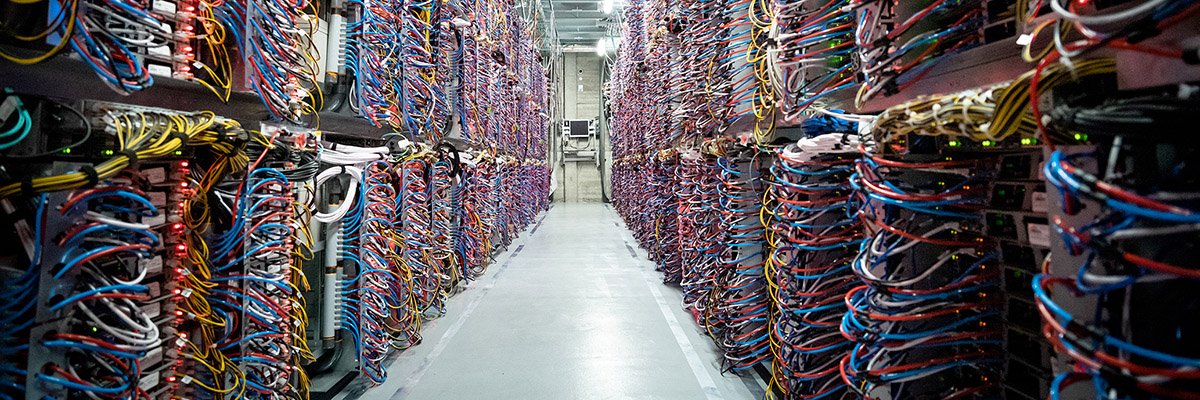
A court in Belgium has refused to allow defence lawyers in a high-profile drugs case extra time after a forensic expert found that digital evidence obtained by police in a hacking operation against the Sky ECC encrypted phone network and relied on by prosecutors was “unreliable”.
The Antwerp Regional Court heard evidence from a British forensic expert that raised new doubts over the digital evidence supplied by Belgian police to prosecute multiple criminal cases linked to a high-profile drugs kingpin, Nordin El Hajjioui, who is accused of importing narcotics through Antwerp.
Defence lawyers presented evidence from forensic expert Duncan Campbell that found errors and inconsistencies in data analysed by Belgian investigators that had not been explained or highlighted to the court. His report suggested the data was processed by people who may not have understood how to process it correctly.
‘Identical’ datasets were not identical
The court heard that there were significant differences between datasets submitted in 2022 and 2025 that prosecutors had claimed were “identical”. It found that 108,000 messages had been added to the most recent dataset.
Prosecution claims that the new messages had only recently been decrypted did not stand up to scrutiny, as the unencrypted versions of the new messages did not exist in the original data, and a large proportion of the new messages had yet to be decrypted.
The court was told that the processes used to provide Sky ECC data to the court were not transparent or verifiable, and that there was no indication that police data analysis conformed with internationally accepted forensic standards.
The data files were not certified by digital fingerprints, file hashes or digital signatures which are used to verify that no accidental or deliberate changes could have been made to digital evidence.
Belgium developed web tool to analyse data
The Belgian police used previously undisclosed web software, known as Edge, developed by Belgium’s directorate for the fight against serious and organised crime (DJSOC) as a platform to analyse data from Sky ECC, it emerged.
According to Reisinger, Campbell’s analysis showed that the Edge tool was not fit for purpose, had produced significant errors, and did not produce evidence to the standard required for criminal trials.
Evidence presented in spreadsheets had gone through filtering processes, which had led to messages being duplicated or changed, or being linked to different Sky ECC identities or different times and content.
Defence refused raw intercept data
Defence lawyers said that to complete their investigation into the reliability of the data, they would need access to the raw intercepted data from Sky ECC and information about the chain of custody of the data, which has not been disclosed to the court by police.
“There are problems and we need to establish the reliability of the data. We asked for the raw data and an explanation from the police of the chain of evidence, but in the end, the court decided not to do it,” said Reisinger.
Prosecutors claimed that Campbell, who acted as an expert witness in trials against drug gangs that used the EncroChat encrypted phone network and produced joint reports with a forensic expert from the UK’s National Crime Agency, was not independent.
The court said it would take Campbell’s findings into consideration, but would not postpone the trial to allow further expert analysis of the reliability of the data.
French interception operation
The prosecution against El Hajjioui, known as Dikke Nordin, relies on messages intercepted by French, Dutch and Belgian police from a hacking operation into the Vancouver-based encrypted phone network, Sky ECC, in 2020.
The operation provided police with “real-time” access to messages exchanged between members of organised criminal groups, after they attached a “man-in-the-middle” server to the Sky ECC infrastructure at the OVH Datacentre in Roubaix, France (pictured above), to intercept messages and encryption keys.
Some 1,600 Belgian law enforcement officers took part in raids in March 2021 on premises linked to drugs, money laundering and bribery, after police infiltrated Sky ECC’s servers in France and decrypted “hundreds of millions” of supposedly encrypted messages.
Spain and Italy question Sky ECC reliability
The reliability of Sky ECC evidence was called into question last week by courts in Italy and Spain. The provincial court in València acquitted 14 people after finding that prosecutors could not rely on digital evidence to prove their case, unless the defence was provided with access to the raw intercepted Sky ECC data.
An Italian court separately ordered prosecutors to make raw intercept data available to defendants to allow them to conduct independent checks into the reliability of the evidence.
The case against Nordin El Hajjioui is due to resume tomorrow.
Tech
How to Watch the 2026 Winter Olympics

Whether you’re a hardcore athletics aficionado or just nurturing a newfound love of hockey thanks to Heated Rivalry, the 2026 Winter Olympics have what you’re looking for.
The Milano Cortina 2026 Winter Olympics will take place across Milan and Cortina, Italy, throughout the month of February. A few competitions start on February 4, but the opening ceremony will be held on February 6 at 2:00 pm ET and will feature performances by Mariah Carey and Andrea Bocelli. Following the events, there will be a closing ceremony on February 22 at 2:30 pm ET.
As in Olympics past, this year’s games will be televised in the US exclusively by NBC. You can watch if you have cable or satellite TV. Cable coverage will be across several NBC channels, including NBC local affiliates, CNBC, and the USA Network.
The Games will also be shown live on NBC’s streaming service Peacock Premium, which requires a subscription of $11 per month. If ads drive you bonkers, the ad-free Peacock Premium Plus costs $18 a month. (Set a calendar reminder to cancel the service after the Olympics if you’re not planning to keep watching Traitors.)
Peacock will also bring back its Olympics hub website, which may be the easiest way to find the events you’re looking for. You can search and bookmark sports or events ahead of time and get notifications for when they go live. This might be especially useful depending on what time zone you’re in, as the games are all taking place in northern Italy, which is in the GMT+1 time zone.
For a full overview of all the events, check out the official Olympics competition schedule. If you’d like to see each and every competition listed in order by event time, we have you covered.
Looking for events by sport? Below is a list of the big events for them all, along with links to the full schedules of every event.
Note: Unless specified otherwise, all times below are listed in US Eastern time.
Opening Ceremony
The three-hour-long opening ceremony will air on nearly every Olympic media outlet on Friday, February 6. Live coverage starts at 2 pm Eastern and 11 am Pacific.
Alpine Skiing
Training for alpine skiing starts on February 4, but the competitive events kick off with men’s downhill on February 7 at 5:30 am. The first medal event for women’s downhill is February 8.
Medal events occur nearly every day through February 18. Final medal games start with the first men’s slalom run on February 16.
Women’s final slalom runs start February 18.
Biathlon
Biathlon events are the closest thing the Olympic games get to a James Bond movie. Skiers zip across mountain trails and then stop to shoot a gun. What’s not to love?
You can watch all the excitement starting with a mixed relay 4 x 6 km on February 8.
All events are medal events and go until the men’s 1- km mass start on February 20 and women’s 12.5-km mass start on February 21.
Bobsleigh
Bobsleigh—no, not bobsled, you philistine—events start February 12. One of the three sliding sports, bobsleigh is a team of two to four people sitting upright in a sled with their heads poking out. (As opposed to luge and skeleton, in which athletes lay on their sleds without sides or backing.)
Training events start on February 12 at 6:50 am. There are four bobsleigh medal events, starting with heat four of the women’s monobob on February 16.
-

 Sports6 days ago
Sports6 days agoPSL 11: Local players’ category renewals unveiled ahead of auction
-

 Entertainment6 days ago
Entertainment6 days agoClaire Danes reveals how she reacted to pregnancy at 44
-

 Tech1 week ago
Tech1 week agoICE Asks Companies About ‘Ad Tech and Big Data’ Tools It Could Use in Investigations
-

 Business6 days ago
Business6 days agoBanking services disrupted as bank employees go on nationwide strike demanding five-day work week
-

 Fashion1 week ago
Fashion1 week agoSpain’s apparel imports up 7.10% in Jan-Oct as sourcing realigns
-

 Sports6 days ago
Sports6 days agoCollege football’s top 100 games of the 2025 season
-

 Politics1 week ago
Politics1 week agoFresh protests after man shot dead in Minneapolis operation
-

 Politics6 days ago
Politics6 days agoTrump vows to ‘de-escalate’ after Minneapolis shootings




